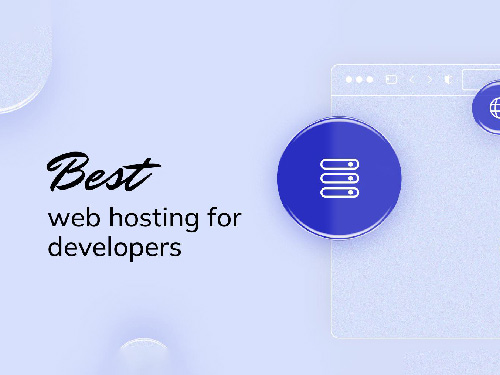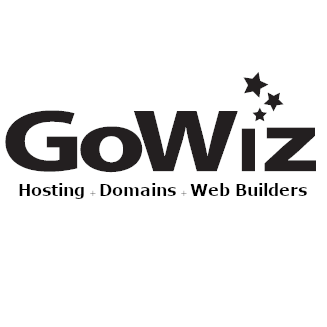Stop Overpaying for Bad Hosting: Our Mission to Find You the Perfect Host
Welcome to Your Unbiased Guide in the Wild West of Web Hosting
The web hosting industry can feel like a maze designed to confuse you. It's a world of flashy ads, confusing jargon, and "unlimited" promises that are anything but. We started this site for one simple reason: to be the trustworthy mapmaker in this confusing territory. Our mission is to cut through the marketing hype with real, verifiable data, helping you find a hosting provider that truly serves your needs without breaking the bank.

The Hosting Maze: Why Choosing a Host is So Difficult
If you've ever felt overwhelmed trying to pick a host, you're not the target of a poorly designed system; you're the target of a brilliantly designed sales funnel. The industry is built on a few key tactics that prioritize provider profit over customer performance. Let's pull back the curtain.
- Deceptive Introductory Pricing: The most common trap is the '$2.95/month' deal. It looks like the most affordable hosting option, but it's a temporary illusion. When your initial term (usually 1-3 years, paid upfront) expires, the renewal price can jump by 300-500%. Suddenly, your 'budget' host is more expensive than premium alternatives.
- The "Unlimited" Myth: "Unlimited" storage and bandwidth is the industry's favorite white lie. Buried deep in the Terms of Service are very real limits. These often include inode limits (the number of files and folders you can have), strict CPU usage policies (throttling your site during traffic spikes), and RAM limitations. Exceed them, and you'll face performance degradation or a forced upgrade.
- Biased "Top 10" Review Sites: Many hosting review sites are little more than affiliate marketing machines. They rank providers not based on performance, but on which company pays the highest commission for a referral. This creates a massive conflict of interest and leaves you with recommendations that serve the reviewer, not the reader.
Our Mission: Replacing Hype with Hard Data
Credibility is everything. To provide you with truly unbiased guidance, we knew we had to build our recommendations on a foundation of objective, repeatable testing. We don't care about a host's marketing budget; we care about its performance under pressure. Here’s how we test every provider we review:
1. Uptime and Reliability Monitoring
A host is useless if it's not online. We set up a test site on every hosting plan and monitor it 24/7 using a third-party service like UptimeRobot. This isn't a one-week test; we track uptime over several months to get an accurate picture of a host's stability. Anything less than 99.9% uptime is a red flag.

2. Raw Speed and Core Web Vitals
Site speed is not just a vanity metric; it's a critical factor for SEO, user experience, and conversion rates. We measure performance using multiple tools:
- Time to First Byte (TTFB): This measures how quickly the server responds to a request. A low TTFB (under 300ms) is a hallmark of a well-configured, high-quality server.
- Largest Contentful Paint (LCP): A Google Core Web Vital, LCP measures how long it takes for the main content of a page to load. We test this from multiple locations worldwide to assess global performance.
- Full Page Load Time: Using tools like GTmetrix and Pingdom, we measure the total time it takes for our standardized test site to become fully interactive.
3. Stress Testing for Real-World Scenarios
How does a host perform when you get a sudden surge of traffic from a successful ad campaign or a viral social media post? We find out by hitting our test sites with simulated traffic using load testing tools like k6.io. We send virtual users to the site simultaneously to see at what point performance starts to degrade. This test separates the truly fast website hosting providers from those that crumble under the slightest pressure—a crucial test for finding the best hosting for small business.
A Tale of Two Hosts: A Practical Comparison
Let's illustrate this with a common scenario. You're choosing between "MegaHost," a well-known budget brand, and "PerformanceCloud," a lesser-known but performance-focused provider.
Case Study 1: MegaHost (The Budget Trap)
- Price: $3/month intro offer (36-month term). Renews at $12/month.
- Uptime: 99.85% (translates to over an hour of downtime per month).
- TTFB: Averages 750ms.
- Load Test: Site becomes unresponsive with just 30 concurrent virtual users.
- Support: 20-minute wait for live chat. Support agent follows a script and tries to upsell a more expensive plan as the first solution.
- Verdict: It seems affordable upfront, but the poor performance directly harms your SEO rankings and frustrates users. The high renewal cost and unreliable service make it a poor long-term investment.
Case Study 2: PerformanceCloud (The Value Performer)
- Price: $20/month flat rate.
- Uptime: 99.99% (translates to less than 5 minutes of downtime per month).
- TTFB: Averages 250ms.
- Load Test: Handles 150 concurrent virtual users with no significant slowdown.
- Support: Live chat connects in under a minute to an expert who can diagnose and fix technical issues directly.
- Verdict: While the initial monthly cost is higher, the value is exponentially greater. This is fast website hosting that can handle real business growth, protect your revenue, and provide peace of mind.
How to Find *Your* Perfect Host
The "best" host is relative to your specific needs. A personal blog has different requirements than a high-traffic e-commerce store.
- For Bloggers & Solopreneurs: A quality shared hosting plan can be a great starting point. Look for providers that use modern tech like LiteSpeed servers and offer transparent, fair renewal pricing. Don't just grab the cheapest option; invest a few extra dollars a month for stability.
- For Small Businesses & E-commerce: Performance is your top priority. Every second of load time costs you conversions. You should be looking at premium Managed WordPress hosting or scalable Cloud VPS solutions. The investment pays for itself in increased sales and better search engine visibility. This is where finding the best hosting for small business becomes a revenue-critical decision.
- For Developers & Agencies: You need flexibility, control, and power. Unmanaged Cloud VPS from providers like DigitalOcean, Vultr, or Akamai (Linode) gives you a blank slate to build on. For client work, managed cloud or VPS hosting can offer the perfect balance of performance and hands-off server management.
Your Next Step: Make an Informed Decision
You don't have to navigate the hosting world alone or rely on biased advice. Your website is too important to leave its foundation to chance. By focusing on data-driven performance metrics over marketing claims, you can find a partner that helps your business thrive.
Tired of the guesswork? Before you renew your current plan or launch your next project, dive into our comprehensive, data-backed hosting reviews. We've done the testing so you can make a confident choice.
What's your biggest hosting headache or success story? Share it in the comments below—let's help each other build better, faster websites!
















